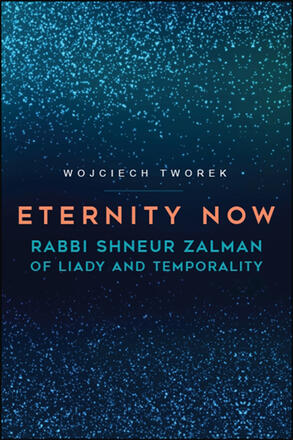
Eternity Now
Rabbi Shneur Zalman of Liady and Temporality
Alternative formats available from:
Demonstrates that Rabbi Shneur Zalman's teachings regarding time and history enabled Habad's growth into a mass Jewish movement.
Description
The Habad movement, formed in eighteenth-century Belarus, has developed into one of the most influential streams of Hasidic Judaism. Drawing on both mystical sermons and legal writings of its founder, Rabbi Shneur Zalman of Liady (1745–1812), Eternity Now provides the first account of the historiosophical dimensions of early Habad doctrine. Challenging the commonly held view that Shneur Zalman was primarily concerned with supratemporal transcendence, Wojciech Tworek reveals the importance of time and history in his teachings. Tworek argues that the worldly dimensions of Shneur Zalman's thought were largely responsible for the rapid growth of Habad at the turn of the nineteenth century and fostered its transformation from an elitist circle into a mass movement. Tworek's readings of Hebrew and Yiddish sources demonstrate the implications of these ideas not only for male scholars but also for non-scholars, Jewish women, and even non-Jews. Philosophical and kabbalistic thought joined together to form a model of religious experience attractive to a broad audience, laying an ideological foundation for the missionary messianism that was to become a hallmark of Habad in the twentieth century.
Wojciech Tworek is Ray D. Wolfe Postdoctoral Fellow at the Anne Tanenbaum Centre for Jewish Studies at the University of Toronto.
Reviews
"The description of Shneur Zalman's teachings as a 'dynamic and often inharmonious body that changes and adjusts according to temporal circumstances' is a thoughtful way of approaching the textual mire of Hasidic sources. Tworek draws upon various corpora without attempting to systematize the teachings into a coherent theological system, revealing their vitality through his analysis of this critical theme. " — Ariel Evan Mayse, editor of From the Depth of the Well: An Anthology of Jewish Mysticism